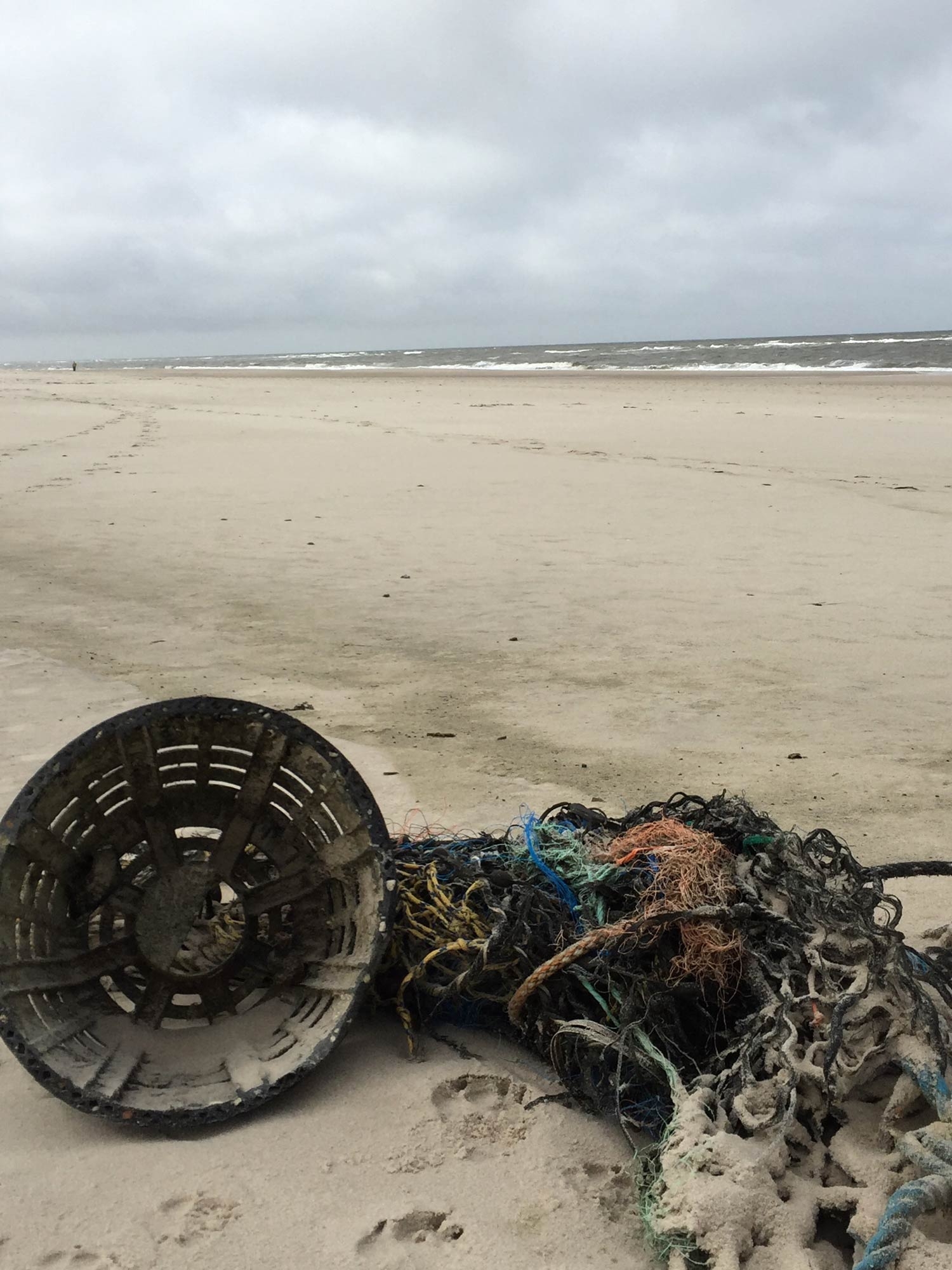
© Protected habitat: The Wadden Sea in front of Sylt.
(c) Olaf Klodt / www.sylt-im-bild.de

© Trash problem: Fishing nets containing trash on the western coast of Sylt.
(c) Olaf Klodt / www.sylt-im-bild.de
The Ocean Conference 2017
June 8, 2017
Delegates to discuss solutions for marine waste, overfishing and habitat destruction
In New York, The Ocean Conference, an inaugural UN summit on marine protection, is currently underway.
From 5 to 9 June 2017, delegates from more than 150 countries will discuss solutions to halt the destruction and pollution of the oceans.
"
The ocean appears infinite, but in reality, it has already reached its limit. It is therefore high time for an oceanic conference so that protection of the global oceans can finally gain momentum. In New York, we must create a framework to strengthen the protection of the ocean and reinforce the existing commitments," said Christoph Heinrich in German. He is member of the executive committee at WWF Germany (
also see here).
"
Humanity has left its undeniable marks in the ocean ecosystem. The destruction of basic habitats such as coral reefs and mangroves has reached insurmountable proportions. Plastic waste has penetrated the remotest marine areas. Over-sized and highly-subsidised fishing fleets hunt dwindling fish stocks and endanger the livelihood of the coastal population in developing countries. Industrial exploitation of the seabed is in its initial stages, but deep-sea mining threatens to cause large-scale destruction of highly sensitive habitats. We need a decisive change of course in dealing with the ocean, because without the sea, there is no life," said Heinrich.
According to the UN’s sustainability agenda, the state of the oceans are expected to improve significantly by 2030, so they can continue to fulfill their important functions for humanity.
The WWF highlights various ways to better protect the seas. In the fight against overfishing in the world's oceans, harmful fishing subsidies, which lead to overcapacity in the fishing fleets or the financing of illegal fishing activities, must be abolished. Such state-funded programmes keep an otherwise unprofitable fishery industry afloat and allow fish stocks to be exploited, threatening the livelihoods of fishermen.
Waste prevention and better waste management systems, especially in Southeast Asian countries, are integral in stopping the rise in sea levels. The WWF is committed to a global convention that creates an internationally binding set of rules for waste management and recycling.
To protect the coastal habitats of mangroves, the organisation calls for a halt in the deforestation of mangrove forests as well as reforestation of new mangrove forests by 2030.
To safeguard the deep ocean from industrial mining, it is essential to invest substantially in the recycling of mineral resources and to research into alternatives. In addition, it is essential to negotiate a strict set of rules for the protection of the marine environment within the framework of the International Seabed Authority.